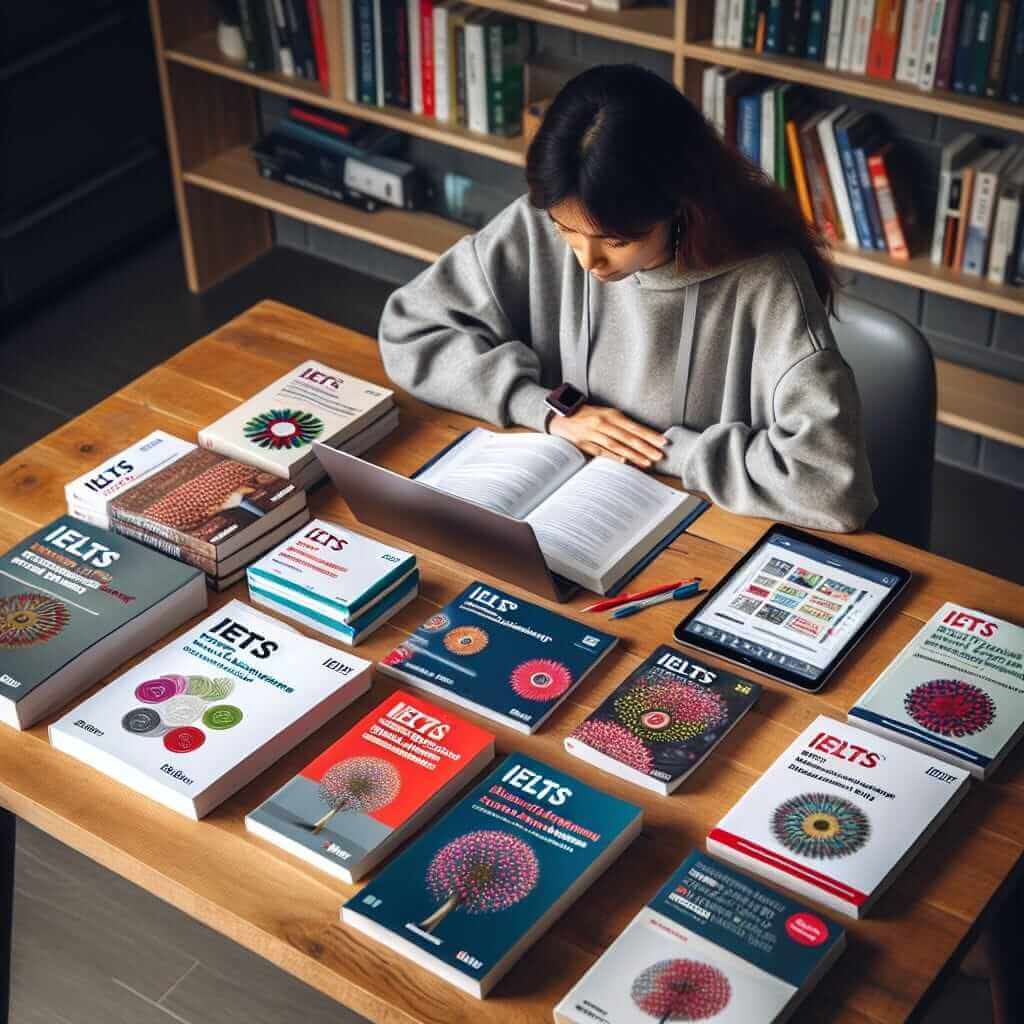Preparing for the IELTS exam can seem daunting, especially when doing it independently. However, with the right strategies and resources, self-study can be an effective and rewarding journey. This comprehensive guide is designed to provide you with a structured approach to successfully navigate the IELTS exam on your own.
Understanding the IELTS Exam
Before embarking on your self-study journey, it’s crucial to have a solid understanding of the IELTS exam format, question types, and the scoring system.
IELTS Exam Format
The IELTS exam assesses your English language proficiency in four modules:
- Listening: 4 sections, 40 questions (30 minutes)
- Reading: 3 sections, 40 questions (60 minutes)
- Writing: 2 tasks (60 minutes)
- Speaking: 3 parts (11-14 minutes)
Understanding the Scoring System
The IELTS scoring system uses a band scale from 0-9, with 9 being the highest level of proficiency. Each module is scored individually, and an overall band score is calculated.
Creating a Study Plan
A well-structured study plan is essential for effective self-study. Here’s a step-by-step guide to creating your own:
1. Assess Your Current English Level
Start by taking a practice IELTS test to identify your strengths and weaknesses. This will help you determine which areas require the most attention.
2. Set Realistic Goals
Establish clear and attainable goals for your target band score. Break down your study plan into smaller, manageable milestones to track your progress.
3. Allocate Dedicated Study Time
Allocate specific time slots for studying IELTS, ensuring consistency and avoiding procrastination. Aim for shorter, focused study sessions rather than long, overwhelming ones.
4. Utilize High-Quality Resources
Invest in reputable IELTS preparation materials, such as practice tests, textbooks, and online resources.
Here are some highly recommended resources:
- Official IELTS website: Provides valuable information about the exam, test format, and official practice materials.
- Cambridge IELTS practice tests: Offer authentic IELTS exam papers, closely simulating the actual test experience.
- Online IELTS preparation platforms: Numerous online platforms provide comprehensive IELTS courses, practice materials, and expert guidance.
5. Focus on All Four Modules
Allocate equal time to developing your skills in Listening, Reading, Writing, and Speaking. Don’t neglect any module, as a well-rounded performance is crucial for achieving your desired score.

Effective Self-Study Techniques
1. Immerse Yourself in the English Language
Surround yourself with English as much as possible. Watch English movies and TV shows, listen to English podcasts and music, and read English books and articles.
2. Develop a Strong Vocabulary
Expand your vocabulary by learning new words and phrases regularly. Utilize flashcards, vocabulary apps, and context-based learning techniques.
3. Master Grammar Rules
A solid understanding of English grammar is essential for all modules of the IELTS exam. Review grammar rules and practice applying them through writing and speaking exercises.
4. Practice Regularly
Consistent practice is key to improving your IELTS skills. Dedicate sufficient time to attempt practice tests under timed conditions to simulate the exam environment.
5. Seek Feedback and Analyze Your Mistakes
After completing practice tests or exercises, carefully review your answers and identify areas for improvement. If possible, seek feedback from an experienced IELTS tutor or teacher.
Tips for Specific IELTS Modules
Listening
- Practice listening to different English accents.
- Focus on understanding the overall meaning rather than individual words.
- Pay attention to keywords and signposting language.
Reading
- Improve your skimming and scanning techniques to quickly locate information.
- Practice understanding complex sentence structures and identifying main ideas.
- Manage your time effectively to complete all sections within the time limit.
Writing
- Familiarize yourself with different essay structures for Task 1 and Task 2.
- Develop your ability to present clear and coherent arguments with supporting evidence.
- Practice writing within the given time frame and word limits.
Speaking
- Practice speaking English regularly with native speakers or language partners.
- Enhance your fluency and coherence by organizing your thoughts before speaking.
- Expand your vocabulary and use a variety of grammatical structures.
Conclusion
While self-studying for the IELTS exam requires discipline and effort, it can be an incredibly rewarding experience. By following a structured study plan, utilizing effective learning techniques, and practicing consistently, you can achieve your desired IELTS score and unlock a world of opportunities. Remember to stay motivated, seek help when needed, and celebrate your progress along the way.